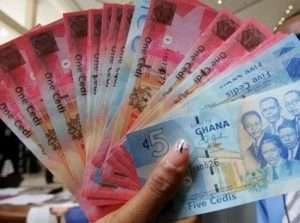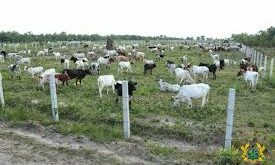Relief initiatives taking shape to ease food and debt
As the supply-chain disruption caused by Russia’s war in Ukraine continues, international relief packages for Africa are starting to take shape. USAID this week pledged a $30m package to support Zambian food exports to East African countries to help ease the impact of soaring food prices.
Meanwhile, Paris-based think tank Finance for Development Lab has launched the African Liquidity and Stability Mechanism to help shield African countries from the impact of volatile commodity prices and provide debt relief.
The mechanism will be funded by African countries, donors and proceeds from rich countries rerouting their allocations of the IMF’s special drawing rights to African countries, in alignment with the Liquidity and Sustainability Facility initiative from the United Nations Economic Commission for Africa.
Such assistance combined with plans from Turkey, the US and others to release trapped grain from Ukraine, signal some gradual relief for Africa’s struggling economies.
Naira dips to fresh dollar low
The Naira dipped to a fresh low against the dollar this week, trading at 616 from 615 at last week’s close. The Nigerian National Petroleum Corporation said it will officially transition to a commercial entity by July 19 as part of a plan to increase operational efficiency and attract local and foreign investment.
Meantime, the EU has pledged about $1.3bn of funding to Nigeria to help it diversify away from fossil fuels and reduce climate change vulnerability. The funding will cover 57 projects across the country focused on averting deforestation, desertification and a waste-to-energy initiative. In the near term, we expect further depreciation given increased dollar demand in a tight FX market.
Cedi sinks to record low after IMF loan request
The Cedi weakened to a fresh low against the dollar this week, depreciating to 8.04 from 7.95 at last week’s close. Amid mass protests over soaring inflation and its weakening currency, Ghana late last week reversed its decision to refrain from requesting international financial aid.
The country is seeking as much as $1.5bn from the IMF to shore up its finances and regain access to global capital markets. At the same time, the government is considering offering fuel coupons to transportation companies to reduce the impact of fuel price inflation on food costs.
Despite the potential for an IMF deal, we [AZA Finance] expect the Cedi to depreciate further given the economic challenges the country faces.
Rand at 2-year low on loadshedding and risk retreat
The Rand slumped to its weakest level against the dollar since the start of the pandemic, trading at 16.55 from 16.45 at last week’s close amid global risk-off sentiment and domestic power shortages.
Concerns that Europe is heading for recession exacerbated the retreat from risk assets, while ongoing loadshedding by South Africa’s power company Eskom is driving speculation of a ratings downgrade, with a negative impact for the country’s strained economy.
Given these pressures, we expect the Rand to continue trading around this level in the week ahead.
Egyptian Pound weaker as investors seek haven assets
The Pound weakened against the dollar this week, trading at 18.89 from 18.80 at last week’s close as investors seek haven currencies and higher interest rates in the US.
Egypt’s government said it will borrow EGP818bn in the local market through the issuance of treasury bills and bonds during the second half of the year to finance its budget deficit.
The government is seeking to reduce the budget deficit to 6.1% of GDP this year, from a gap as high as 12.5% in 2016, as part of a plan to bring debt levels towards 84% of GDP and make the country less reliant on international financing. We expect the Pound to trade at a similar levels in coming days.
Kenyan Shilling hits new low as inflation climbs
The Shilling weakened to another record dollar low this week, depreciating to 117.95/118.15 from 117.70/117.90 at last week’s close. Kenya’s central bank said annual inflation jumped to 7.9% in June from 7.1% in May due to increases in food and energy prices.
Food inflation has been exacerbated by unfavourable weather conditions and increased transport costs owing to higher oil prices fuelled by Russia’s war in Ukraine. With August’s presidential election approaching, we expect political uncertainty to further destabilise the Shilling in the near term.
Source: thebftonline.com
 Home Of Ghana News Ghana News, Entertainment And More
Home Of Ghana News Ghana News, Entertainment And More





